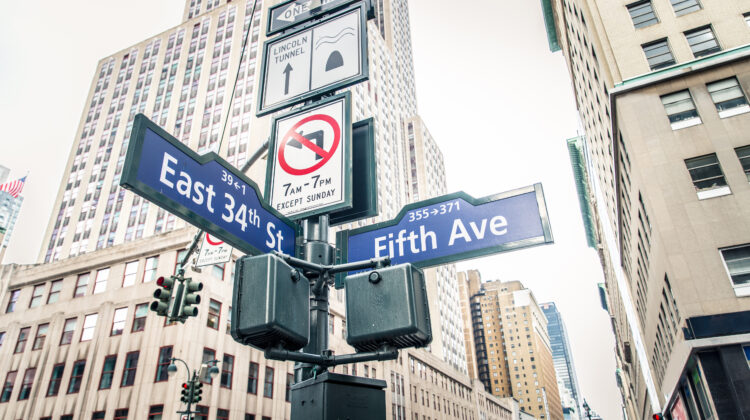
New York officials are working to lower the barriers for cannabis operators entering the market and also foster greater diversity across the state’s industry.
The New York Cannabis Control Board (CCB) recently unveiled a series of regulatory updates aimed at advancing the state’s cannabis market while building equitable access for all stakeholders. Key developments include a six-month extension for provisional licenses granted to social equity retailers—businesses owned by individuals from communities disproportionately impacted by the War on Drugs—under the Conditional Adult-Use Retail Dispensary (CAURD) program. Additionally, new payment flexibility has been introduced for Registered Organizations (ROs) looking to expand into adult-use cannabis sales.
Social Equity Retailers: About the Deadline Extension
Many CAURD applicants have faced significant challenges in meeting the original deadline to open their dispensaries. Since the issuance of CAURD permits two years ago, licensees have struggled to secure suitable locations, raise capital, and navigate the complex regulatory landscape. Many of these applicants, particularly those from historically marginalized communities, lack the resources and industry connections that well-funded businesses often rely on.
Applicants like Britni Tantalo, president of the New York Cannabis Retail Association, have highlighted that most CAURD applicants initially trusted the state to provide critical support, such as funding and assistance with finding real estate. However, with lawsuits and delays continuously stalling the process, many applicants have been left struggling to advance their businesses.
In response, the New York CCB has granted a six-month extension to these provisional license holders, allowing them more time to finalize their operations and secure permanent licenses. The extension ensures that applicants don’t have to rush to open their doors within the next few months. Instead, the entrepreneurs can focus on completing necessary steps to become fully operational.
However, they must complete all licensing steps and demonstrate substantial progress.
“This does not necessarily mean that a CAURD (licensee) needs to have its doors open within six months, but they do need to have their final license issued in order for the provisional license not to expire,” Patrick McKeage, chief operating officer for the Office of Cannabis Management told Crains. “Some of the aspects of getting your actual dispensary opening, like going through the municipal hurdles or doing a build out of your location, some of those can just take time that’s not necessarily in the licensee’s control.”
Cannabis NYC Loan Fund
In addition to the deadline extension, New York City has launched a $2 million loan fund to assist CAURD operators with loans for startup costs.
Launched in October 2024, the Cannabis NYC Loan Fund offers loans of up to $100,000 for startup and operating costs, with terms as long as three years and interest rates capped at 9.5%. It will allow businesses to use the capital for a wide range of expenses, including rent, inventory, and other operational needs—giving borrowers the freedom to direct funds where they are most needed.
New Cannabis Licensing
In its latest round of approvals, the New York CCB has granted 125 new licenses across multiple sectors, signaling continued growth and diversification in the state’s cannabis market. The breakdown includes:
- 42 retail dispensaries
- 30 micro-businesses
- six cultivators
- 11 distributors
- 36 processors
These new licenses bring the total number of cannabis licenses issued in 2024 to 1,311, with 230 dispensaries now open operational across the state. The new licenses will support the 2.7 million regular or monthly cannabis consumers in NY, as well as the state’s growing licensed locations struggling to establish themselves in a market with an overabundance of illegal shops.
Processor Type 3 Licenses
One notable development is the introduction of a new licensing category: the Processor Type 3. This category is designed for cannabis brands that wish to participate in the market without directly handling cannabis plants. It offers greater flexibility for non-plant-touching businesses and aims to reduce market oversupply by providing additional opportunities for branding and distribution.
Key Features of the Processor Type 3 Branding License include:
- White-Labeling Agreements: Brands can enter into agreements with licensed processors to have their products made and distributed under the brand’s name.
- Non-Plant-Touching: The license does not permit any cultivation or manufacturing activities, offering a flexible entry point for brands.
- Regulatory Compliance: Brands must disclose ownership and True Parties of Interest (TPI), ensuring transparency and adherence to regulations like ownership limits and undue influence.
- Market Flexibility: This license supports innovation and reduces oversupply, allowing more businesses to enter the market without the need for cultivation or processing facilities.
The move comes in response to the growing need for cannabis brands to operate independently from cultivators and processors, allowing them to develop their own products, establish their brand presence, and contribute to a more dynamic, sustainable market. The change is expected to further enhance market competition and innovation, providing more avenues for business owners to enter and thrive in New York’s expanding cannabis industry.
Learn more about the cannabis brand license type and how to apply here.
Looking Ahead
The state’s Office of Cannabis Control staff reported that the office has processed applications through queue number 1,619 for November submissions, leaving approximately 400 under initial review. McKeage warned applicants to watch for deficiency notices, particularly regarding TPI disclosures that require individual submissions and fingerprinting.
These decisions are a step in the right direction in supporting social equity applicants and addressing the unique challenges they face. It also hints at a more inclusive market, where equity licensees have a genuine opportunity to succeed.
Featured image via oneinchpunchphotos



Leave a Reply